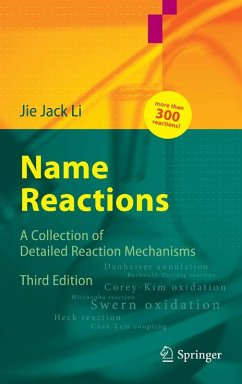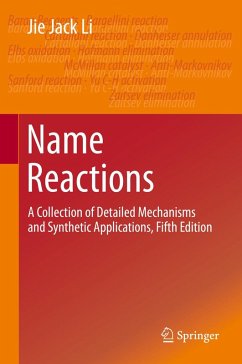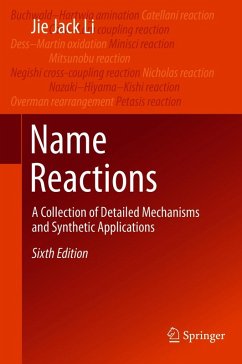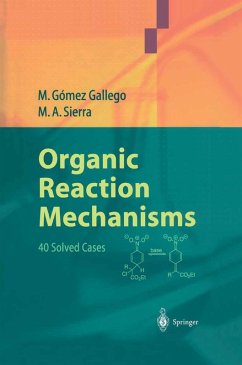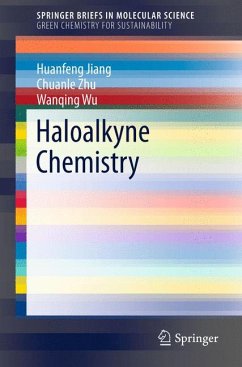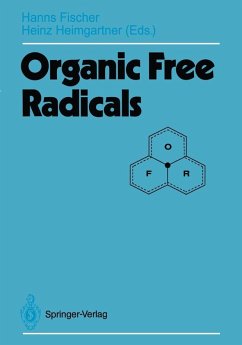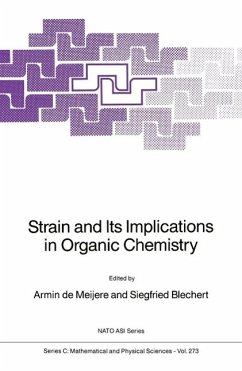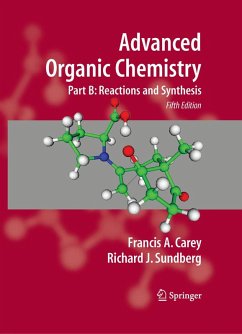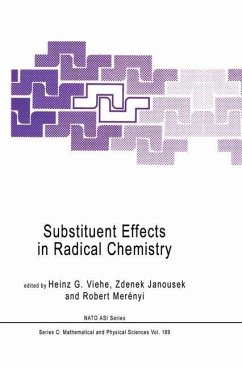
Organic Mechanisms (eBook, PDF)
Reactions, Stereochemistry and Synthesis
Redaktion: Harmata, Michael / Illustrator: Zettlmeier, Wolfgang

PAYBACK Punkte
36 °P sammeln!
"Much of life can be understood in rational terms if expressed in the language of chemistry. It is an international language, a language without dialects, a language for all time, a language that explains where we came from, what we are, and where the physical world will allow us to go. Chemical Language has great esthetic beauty and links the physical sciences to the b- logical sciences. " from The Two Cultures: Chemistry and Biology by Arthur Kornberg (Nobel Prize in Physiology and Medicine, 1959) Over the past two centuries, chemistry has evolved from a relatively pure disciplinary pursuit ...
"Much of life can be understood in rational terms if expressed in the language of chemistry. It is an international language, a language without dialects, a language for all time, a language that explains where we came from, what we are, and where the physical world will allow us to go. Chemical Language has great esthetic beauty and links the physical sciences to the b- logical sciences. " from The Two Cultures: Chemistry and Biology by Arthur Kornberg (Nobel Prize in Physiology and Medicine, 1959) Over the past two centuries, chemistry has evolved from a relatively pure disciplinary pursuit to a position of central importance in the physical and life sciences. More generally, it has p- vided the language and methodology that has unified, integrated and, indeed, molecularized the sciences, shaping our understanding of the molecular world and in so doing the direction, development and destiny of scientific research. The "language of chemistry" referred to by my former Stanford colleague is made up of atoms and bonds and their interactions. It is a s- tem of knowledge that allows us to understand structure and events at a molecular level and increasingly to use that understanding to create new knowledge and beneficial change. The words on this page, for example, are detected by the eye in a series of events, now generally understood at the molecular level.
Dieser Download kann aus rechtlichen Gründen nur mit Rechnungsadresse in A, B, BG, CY, CZ, D, DK, EW, E, FIN, F, GR, HR, H, IRL, I, LT, L, LR, M, NL, PL, P, R, S, SLO, SK ausgeliefert werden.



